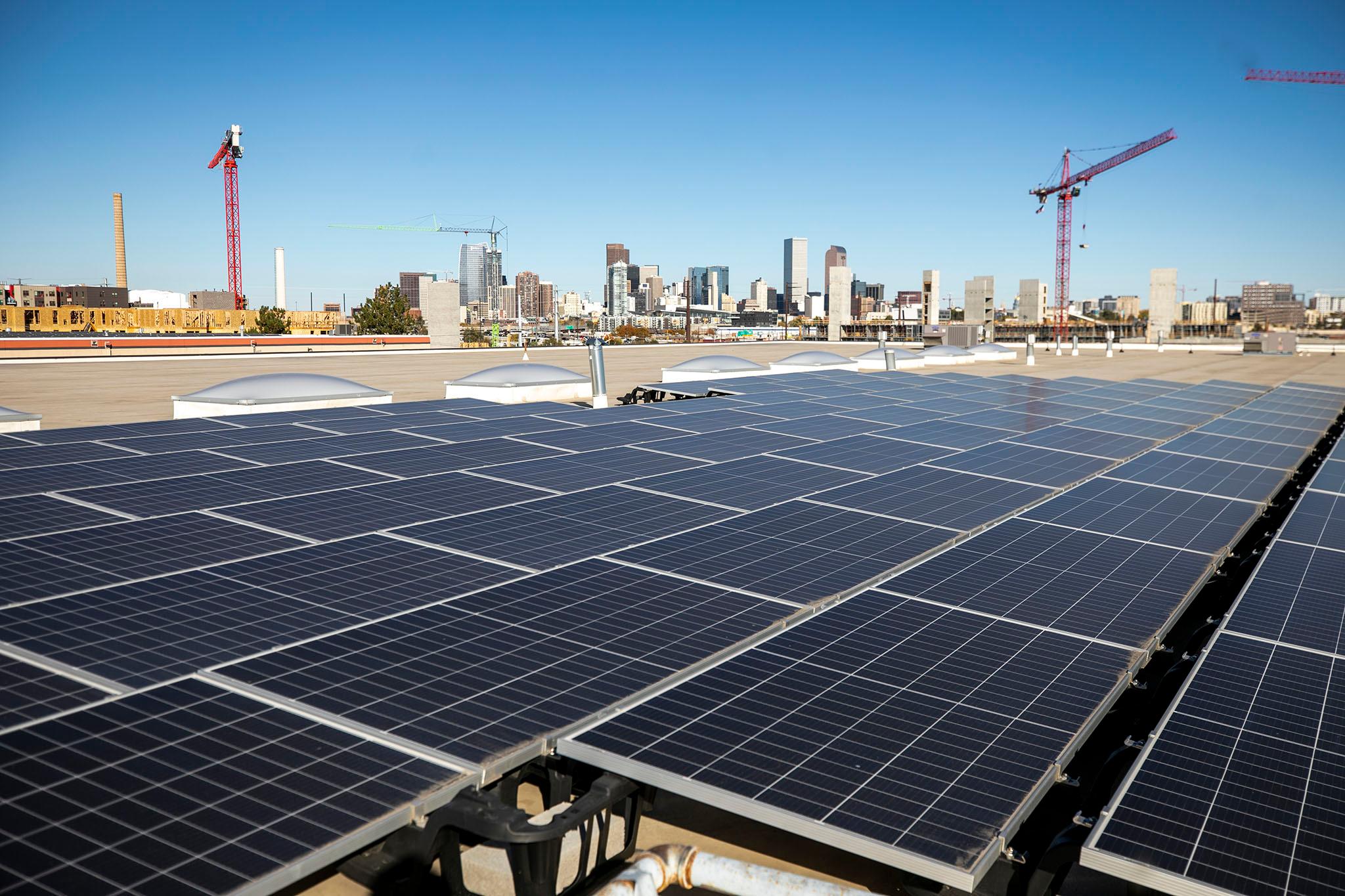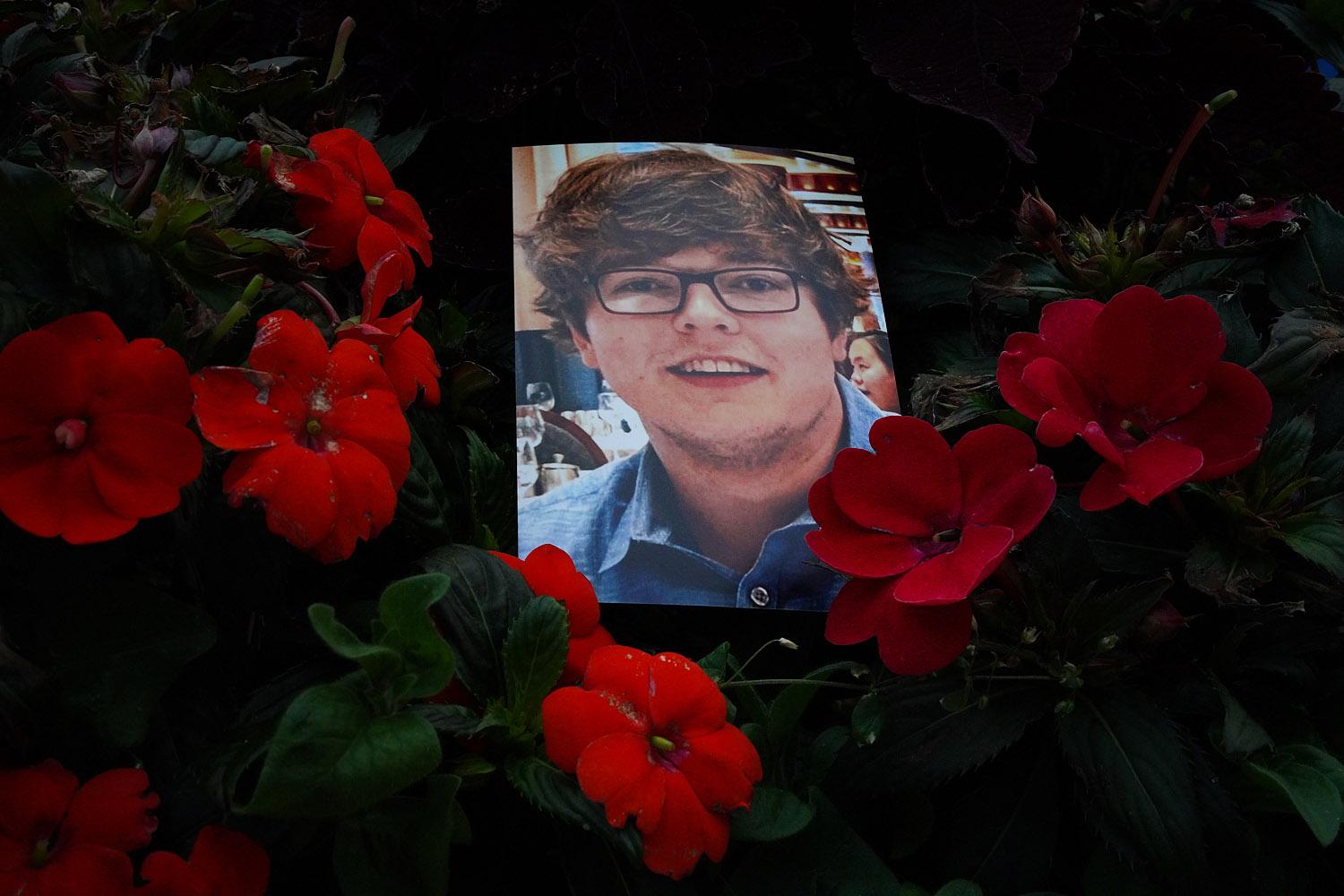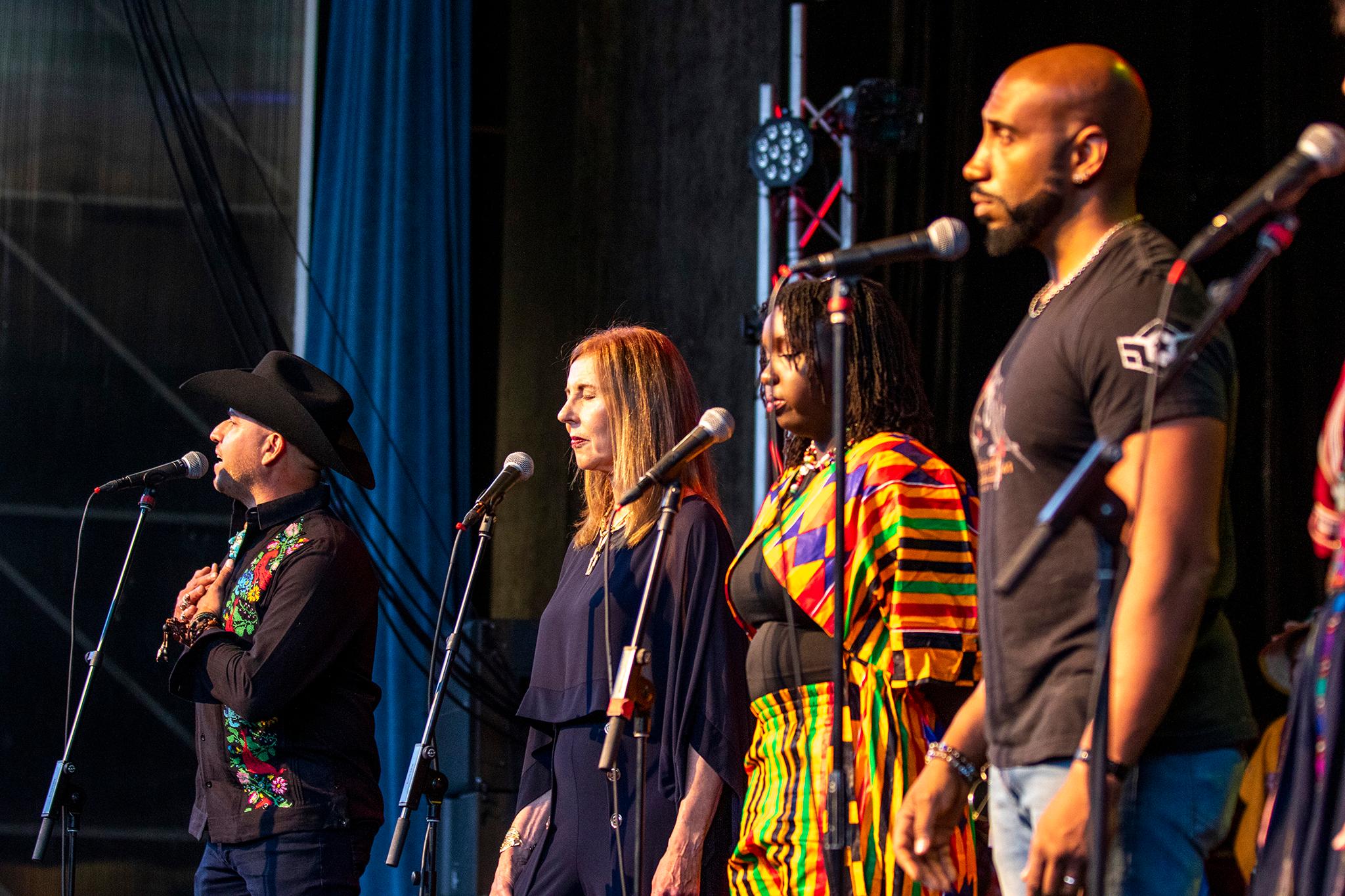
In the days leading up to her part in the first-ever performance of a group-authored poem reflecting Metro Denver’s diversity, Becky Hogan had a lot to manage.
The 65-year-old retired consultant who lives in Aurora, went to a Korean shop and rented a hanbok, a traditional dress worn for formal occasions, for about $350. She also rented shoes to match.
“They would be worn at weddings, possibly even funerals, family pictures. It’s a way to dress up in more traditional clothing,” she explained. “It’s layers of clothing. I had a very starched kind of slip, then you put the dress around it. It’s a wrapped dress that you tie slightly above your chest and then the jacket goes over it,” she said. Hers was in tones of pink, white and pale blue.
Her preparation wasn’t limited to clothes. In the days leading up to her performance, she placed the lines she’d have to perform in front of a crowd at the Arvada Center on the nightstand next to her bed. They would be the last thing she saw before going to sleep and the first thing she saw in the morning
“While my lines were very few, it was still taxing for me to memorize,” she said.
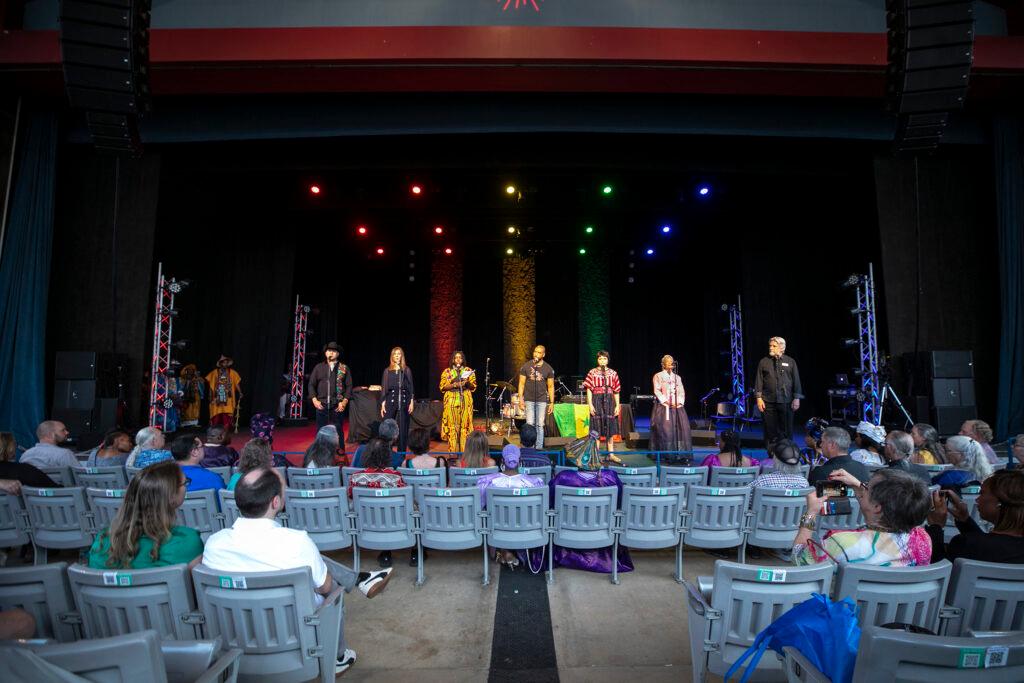
In time, she committed to memory not only the lines of the seven-minute poem, but also her cues, so she would know when to join her fellow presenters in reciting the lines they shared in their collective effort, “I Am The Bridge: A Poem By All Of Us.” It was composed at a spiritual center in Aurora by about 50 people who’d been asked to participate by Papa Dia, 52, a Senegalese immigrant who founded and leads the African Leadership Group.
When Hogan’s time came Saturday night at the Arvada Center, she was ready. She was near the end of the line as the leader from each affinity group took the stage – she was representing the Asian affinity group. The silky material of her hanbok floated around her as she chimed in a few times until it was time for her solo part:
“I am Asian American, with hair as black as ink, and eyes like coal . . . but everything around us looks light. .. We are small in stature, but we have hearts the size of giants.. . . breaking the stereotypes of the model minority. ..”
She gestured with her arms, with a confident smile on her face. If she faltered a beat here or there, no one in the audience noticed, as they were all caught up in the uniqueness of the rendition. Then, just like that, what she’d been preparing for all summer was done.
“It brought great joy, because it was a collaborative effort,” recalled Hogan, who has lived in Aurora for more than three decades. She was married to former Aurora Mayor Steve Hogan, who died in 2018. “I did my best to get my part done.”
The inspiration
The process began in early July, when about 50 participants gathered to begin suggesting parts representative of each of their racial or ethnic groups. The process, led by Dia, was intended to break down barriers between cultural and ethnic communities that don’t always have an easy way to connect.
The finished product was organized by local slam poet Theo EJ Wilson, who selected representative sections submitted by each affinity group, and knitted them together. He also led rehearsals in the weeks leading up to the performance, including the last one at noon, hours before the big reveal at the Arvada Center last Saturday evening.
What emerged was a seven-minute declaration by Native Americans, Latinos, Asians, Blacks, Jews, whites and immigrants from Africa. Each group brought different perspectives on the American experience and what unity means to them.
The poem, “I Am The Bridge: A Poem By All Of Us.”, was performed Saturday night in Arvada and will be again performed at the Denver Botanic Gardens on Aug. 26.
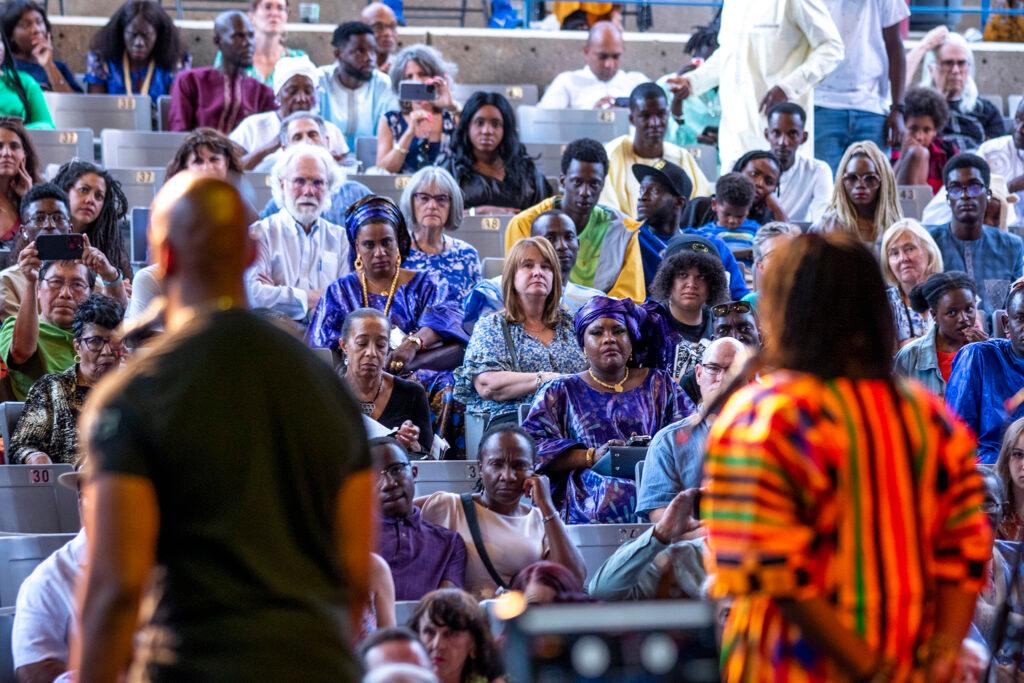
Dia’s Aurora-based African Leadership Group has been around for 15 years. Its mission is to help the African immigrant community improve its quality of life and break barriers between cultural groups who might not have a reason to get to know each other, He had the idea for the group after observing frictions between Black Americans and African-born immigrants, and later expanded the group’s mission to make connections between a range of ethnicities. Over the past four years, Dia, who has been in the U.S. for 25 years, has been planning to get people from different groups together this summer to work on a poem.
Hogan’s rented pink hanbok and shoes were far from the only traditional adornment at the Arvada Center Saturday.
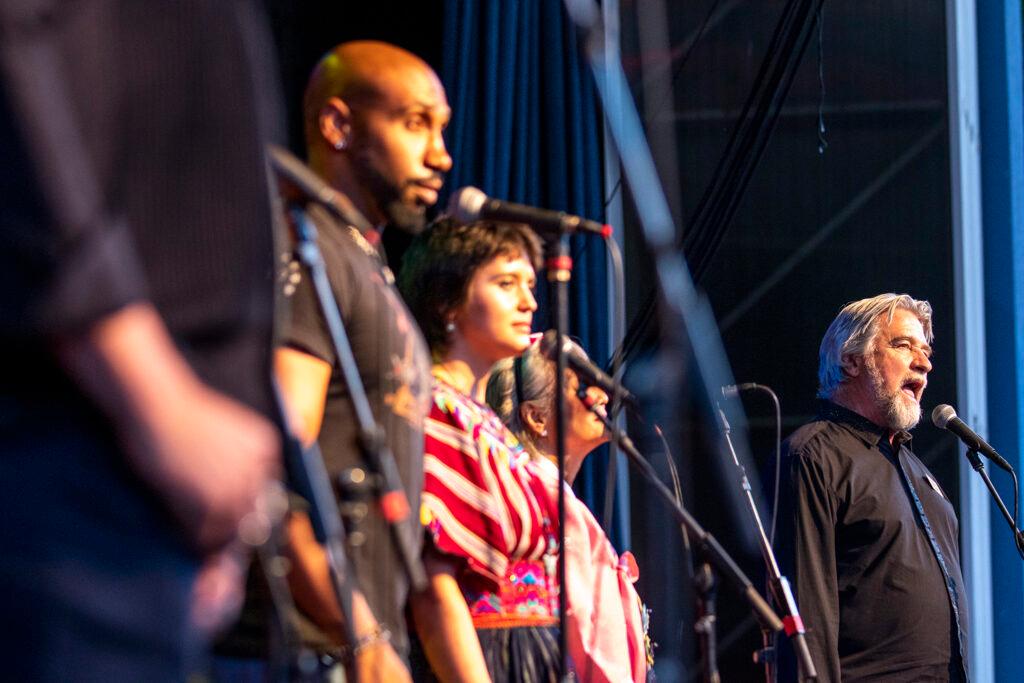
Newly minted community poets representing the Mexican/Latino, African Immigrant, and Native American groups also were traditionally dressed as they stood several feet apart before mics on the outside stage of the Arvada Center, with Wilson, clad in jeans in the center. The audience was watching from both the lawn and seats. The other groups on the stage were Jewish or descended from Europeans. It was a chance for some group leaders to renew acquaintances they’d formed at previous poem-related gatherings.
“My goal is to show this country and to show the entire world, when a community comes together, there's nothing that can stop us,” Dia said during an emotional introduction. “And [let’s] start here tonight.”
Wilson, who had pulled together all the lines and led the rehearsals, began the performance of the poem at about 7:30 on Saturday night. His voice sounded filled with emotion as he moved around on stage, acting out his lines. He was joined by the other six people on the stage who sometimes spoke individually and sometimes spoke in unison with him and each other.
The performance
People in the audience were silent as the poem began:
Our history did not begin in chains
I am African rhythms thumping in a break dance battle in Brooklyn.
I am foundational Black American, born in the basement of the American dream, a lynch rope for an umbilical cord attached to a motherland we've long forgotten.
The trauma of my ancestors is embedded in my DNA….
As the poem continued, Dia, seen on stage in the shadows, looked visibly moved, and people in the audience could be seen dabbing at their eyes. As one co-poet’s portion ended, another’s began, so the audience heard a range of accents.
The sweat from my brow paved the ground for the red, white, and blue,
A star span, noose, choking the life outta my ancestors and still we rise!
The blood and bones I carry are rich and yet they are seen as opposite.
I am the people who have been hated, feared, misunderstood, and revered.
I am the unstoppable, indestructible spirit of human love and resilience.
I am unapologetically black in all shades and rhythms.
I am the bridge from yesterday's sorrows to a child's hope for tomorrow.
When the performance was complete, Wilson, in a voice weighty with emotion said, “Thank you very much,” to thunderous applause.
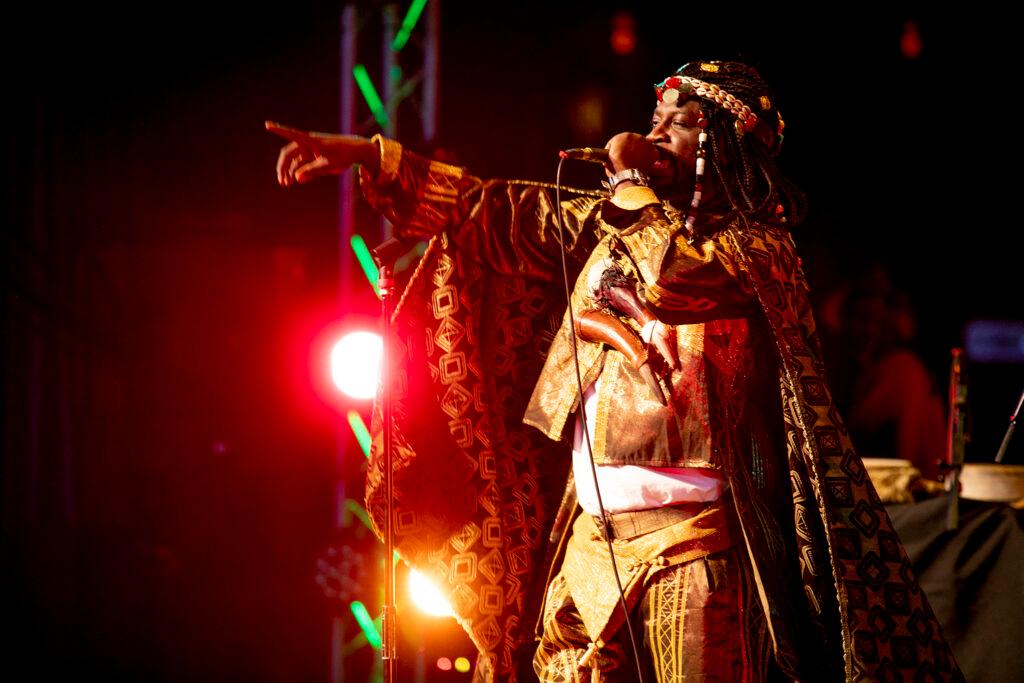
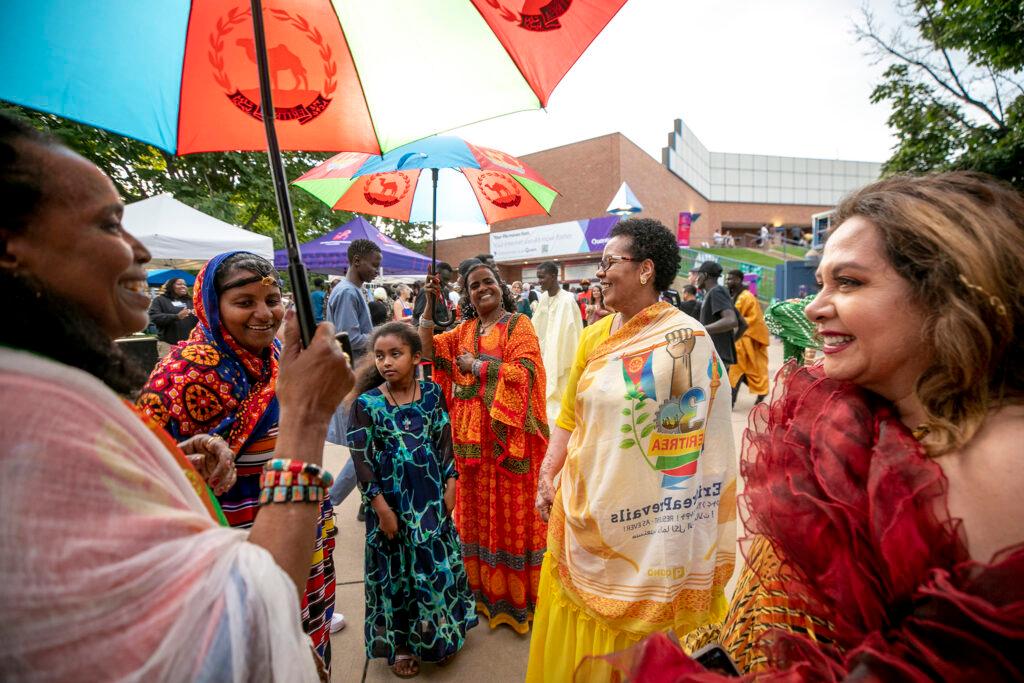
Hogan said the experience had profound meaning.
“I am very proud, because I knew the work that had gone in, not knowing how people would receive it,” she said in a telephone interview a few days after the performance. “It’s just amazing and wonderful to hear different people’s stories.”
And she said it fulfilled Dia’s mission, which was breaking barriers between, and building bridges among, different cultural groups.
“This experience really was getting to know the other people, both the people that we wrote collaboratively together with, because some I have never met before, and then all the people that were performing the poem, all of whom I had never met before,” she added. ”I would say that we walk away as friends.”





